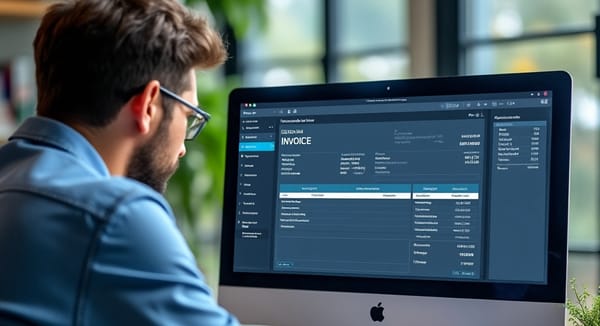5 Reasons Why Spreadsheet Accounting is a Poor Choice
Spreadsheets are enormously powerful tools. They were the main reason the PC revolution got started in the first place. While most people have forgotten Visicalc or Lotus 123, their successor Excel – or even Google Docs – is now so powerful that some businesses run their entire operations on spreadsheets.
But is it wise to do keep your books on a spreadsheet? I would argue that it's not and for the following reasons:
1. Getting the right functionality is hard
Out of the box, a spreadsheet will not provide the functionality you need to keep track of revenue, expenses, VAT, bank accounts etc... It can be done but it does require some work. You can find ready-made spreadsheets that will provide some of that functionality (and in fact we do provide such a template to our clients) but the functionality will never be as good as what a dedicated bookkeeping package can offer.
2. Who does the maintenance?
Since bookkeeping functionality does not come out of the box, you will rely on a third party for that. An employee, a friend, an accountant. What happens when that person disappears, and a new VAT rate is implemented? Or something breaks? Will you be able to take over?
3. Spreadsheets are notoriously fragile
While spreadsheets offer great flexibility, this flexibility means that it's a lot easier to make mistakes. Changing a formula, overriding a cell, deleting a row can happen so easily, even in a protected worksheet. And the more complex the worksheet, the hardest it is to even discover a problem in the first place. Even if you manage not to break the spreadsheet, lack of features such as audit trails, underlying double entry accounting and bank reconciliations mean that when things go wrong, troubleshooting will be much more difficult...
4. Room for growth
While it's possible to build very sophisticated spreadsheets, some things are just not possible. If you need cash management, credit control, multi-currency support, VAT reverse charging, bank reconciliations, document management or sophisticated reporting you can be sure that your spreadsheet will fall short. Trying to expand the functionality will just make the solution more prone to errors. At that point you will have to migrate over to a dedicated accounting package, just when the business picks up and you have no time for that...
5. Peace of mind
Unless you're using Google Docs (which means your spreadsheet solution is simplistic), your spreadsheet is sitting on your PC. Do you back it up regularly? What happens if you lose the hard disk? And how do you merge 2 different versions when your accountant has made changes at the same time as you? What if you need access while away from the office?
It's clear that while using a spreadsheet to keep track of your accounts can be tempting, it is a solution fraught with risks and limitations. You can nowadays find hosted solutions for as little as £12+VAT that will solve many of the problems we just mentioned. Upgrade your bookkeeping, don't be locked in the past...



